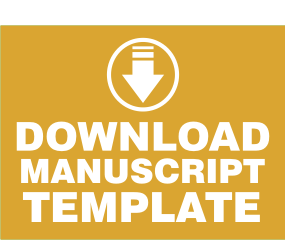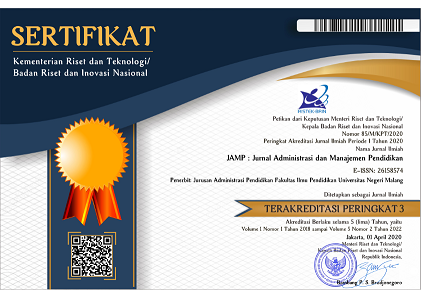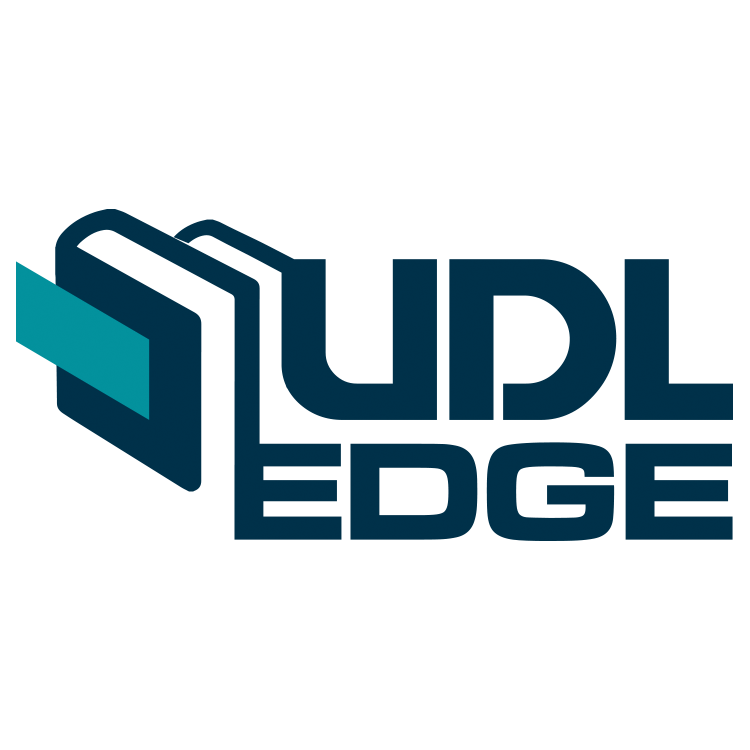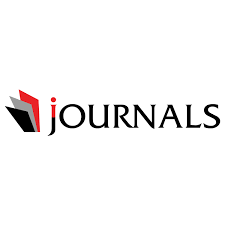Pendidikan di Singapore: Keberhasilan Implementasi Kebijakan Pendidikan Berbasis Sistem Meritokrasi dan Pengembangan Guru
Abstract
Abstract: This research examines the successful implementation of meritocracy-based educational policies and the professional development of teachers in Singapore. The method used in this research is qualitative based on literature research by collecting information or data from trusted sources, such as journal articles and books. After that, it is analyzed in content, processed briefly and systematically. The research results show that the implementation of meritocracy-based education policies in Singapore has been successful in increasing the quality of learning in the country. This policy ensures that outstanding students are given appropriate recognition and incentives, thereby encouraging them to continue learning, being competitive, and performing high. Not only that, this policy also helps increase accountability and transparency in the learning system. The development of qualified teachers is also a major focus in Singapore's learning policy. Teachers in Singapore are given the opportunity to develop themselves reliably. Teachers are given the opportunity to take 100 hours per year for their professional development (Professional Development / PD). Thus producing a more efficient learning area. Overall, this research shows that meritocracy-based educational policies and teacher professional development in Singapore have been successful in increasing the quality of learning and producing better learning areas. This is what makes Singapore in its education zone very advanced and becomes a reference for other countries to study there, let alone try to imitate its policy system.
Keywords: Singapore, Education Policy, Meritocracy, Teacher Development
Abstrak: Riset ini mengulas tentang keberhasilan implementasi kebijakan pendidikan berbasis meritokrasi dan pengembangan profesional guru di Singapore. Metode yang digunakan dalam riset ini merupakan kulitatif yang berbasis riset pustaka dengan mengumpulkan informasi ataupun data dari sumber- sumber yang terpercaya, semacam artikel jurnal, serta buku- buku. Setelah itu di analisis secara isi, diolah secara ringkas serta sistematis. Hasil riset menampilkan kalau implementasi kebijakan pendidikan berbasis meritokrasi di Singapore sudah sukses tingkatkan mutu pembelajaran di negeri tersebut. Kebijakan ini membenarkan kalau siswa-siswi yang berprestasi diberikan pengakuan serta insentif yang pantas, sehingga mendesak mereka buat terus belajar, berkompetitif, serta berkinerja besar. Tidak hanya itu, kebijakan ini pula menopang tingkatkan akuntabilitas serta transparansi dalam sistem pembelajaran. Pengembangan handal guru pula jadi fokus utama dalam kebijakan pembelajaran Singapore. Guru di Singapore diberikan peluang buat meningkatkan dirinya secara handal. Guru di berikan peluang buat mengambil 100 jam per tahun buat pengembangan profesionalnya (Professional Development/ PD). Sehingga menghasilkan area belajar yang lebih efisien. Secara totalitas, riset ini menampilkan kalau kebijakan pendidikan berbasis meritokrasi dan pengembangan profesional guru di Singapore sudah sukses tingkatkan mutu pembelajaran serta menghasilkan area belajar yang lebih baik. Perihal tersebutlah menjadikan Singapore dalam zona pendidikannya sangat maju serta jadi referensi negara-negara lain buat belajar disitu apalagi mencoba meniru sistem kebijakannya.
Kata kunci: Singapore, Kebijakan Pendidikan, Meritokrasi, Pengembangan Guru
Full Text:
PDFReferences
AST. (2021). AST: Office of Subject Chapters. Retrieved April 13, 2023, from AST website: https://
academyofsingaporeteachers.moe.edu.sg/about-us/officeof-subject-chapters.
Bautista, A., Wong, J., & Gopinathan, S. (2015). Teacher Professional Development in Singapore:
Depicting the Landscape. Psychology, Society & Education, (Online), Jilid 7, 311–326. (https://doi.org/10.25115/psye.v7i3.523, diakses 13 April 2023).
Chua, Y. P. (2003). Education in Singapore: A focus on efficiency. In P. Gopinathan, A. Pakir, W.
K. Ho, & V. Saravanan (Eds.), Education in Singapore: A book of readings (pp. 38-61). Singapore: Prentice Hall.
Hairon, S., & Dimmock, C. (2012). Singapore schools and professional learning communities:
Teacher professional development and school leadership in an Asian hierarchical system. Educational Review. 64(4), 405–424.
Hira, Anil, dan Shiao, Kai. 2016. Understanding the Deep Roots of Success in Effective Civil
Service. Journal of Developing Societies, Vol. 32, No.1, Hlm: 17-43.
Kaur, B., & Wong, L. F. (2017). Professional Development of Mathematics Teachers in Singapore.
In B. Kaur, O. N. Kwon, & Y. H. Leong (Eds.), Professional Development of Mathematics Teachers: An Asian Perspective (pp. 97–108). Springer.
Leong, C. K., & Wong, F. K. (2011). The Singapore education system: An overview of successes
and shortcomings. Asian Journal of Education and e-Learning, 1(1), 1-11.
Lee, S. K. (2019). Singapore education: The dynamics of its success. Journal of Education and
Work, 32(1), 1-18.
Lee, C. K.-E., & Tan, M. Y. (2010). Rating Teachers and Rewarding Teacher Performance: The
Context of Singapore.
Lim, S. E. A. N., & Wong, M. K. (2019). Teacher professional development in Singapore: A
narrative inquiry. Professional Development in Education, 45(3), 469-481.
Low, E. L., Lim, S. K., Ch’ng, A., & Goh, K. C. (2011). Pre-service teachers’ reasons for choosing
teaching as a career in Singapore. Asia Pacific Journal of Education, (Online), 31(2), 195–210. (https://doi.org/10.1080/02188791.2011.567441, diakses 13 April 2023).
Mauzy, Dianne K. and Milne, R.S. (2002). Singapore Politics Under The People’s Action Party.
London: Routledge.
Ministry of Education, Singapore. (2018). Meritocracy. Retrieved April 12, 2023, From website:
https://www.moe.gove.sg/education/education-system/meritocracy.
MoE. (2020). Professional Development and Career Tracks. Ministry of Education Singapore.
Retrieved April 12, 2023, From website: From website: https://www.moe.gov.sg/careers/become-teachers/pri-sec jcci/professionaldevelopment/
Ng, P. T. (2017). Education policy and leadership in Singapore: The rise of the Asian tiger.
Routledge.
NIE. (2021). Professional and Leadership Development. National Institute of Education (NIE),
Singapore. (Online), (https://www.nie.edu.sg/professional-and-leadership-development, diakses 13 April 2023).
Quah, J.S.T. (2018). “Why Singapore works: five secrets of Singapore’s success”, Public
Administration and Policy. Vol. 21, No. 1, Hlm: 5-21.
Quah, J.S.T. (2015). ”Lee Kuan Yew’s enduring legacy of good governance in Singapore, 1959-
”, Asian Education and Development Studies, Vol. 4, No. 4, Hlm: 374-393.
Schein, E.H. 1996. Strategic Pragmatism: The Culture of Singapore Economics Development
Board. Cambridge: The MIT Press.
Suwarno, J. (2006). Metode Penelitian Kuantitatif dan Kualitatif. Yogyakarta: Graha Ilmu.
Sugiyono. (2010). Metode Penelitian Pendidikan Pendekatan Kuantitatif, Kualitatif, dan R&D.
Bandung: Alfabeta.
Tan, C. (2018). Education in Singapore: A competitive meritocracy. Oxford Research Encyclopedia
of Education, (Online), (http:// doi:10.1093/acrefore/9780190264093.013.156 , diakses 13 April 2023)
Tan, Kenneth Paul. (2008). “Meritocracy and Elistism in a Global City: Ideological Shifts in
Singapore”, International Political Science. Vol. 29. No. 1, Hlm: 7-27.
Tan, C. (2018). Education in Singapore: Quality and equality in a globalized world. Routledge.
DOI: http://dx.doi.org/10.17977/um027v6i42023p336
Refbacks
- There are currently no refbacks.
Copyright (c) 2023 Jurnal Administrasi dan Manajemen Pendidikan

This work is licensed under a Creative Commons Attribution-ShareAlike 4.0 International License.


This work is licensed under a Creative Commons Attribution-NonCommercial-ShareAlike 4.0 International License.









12.png)